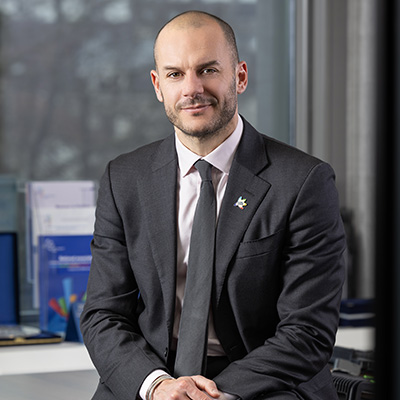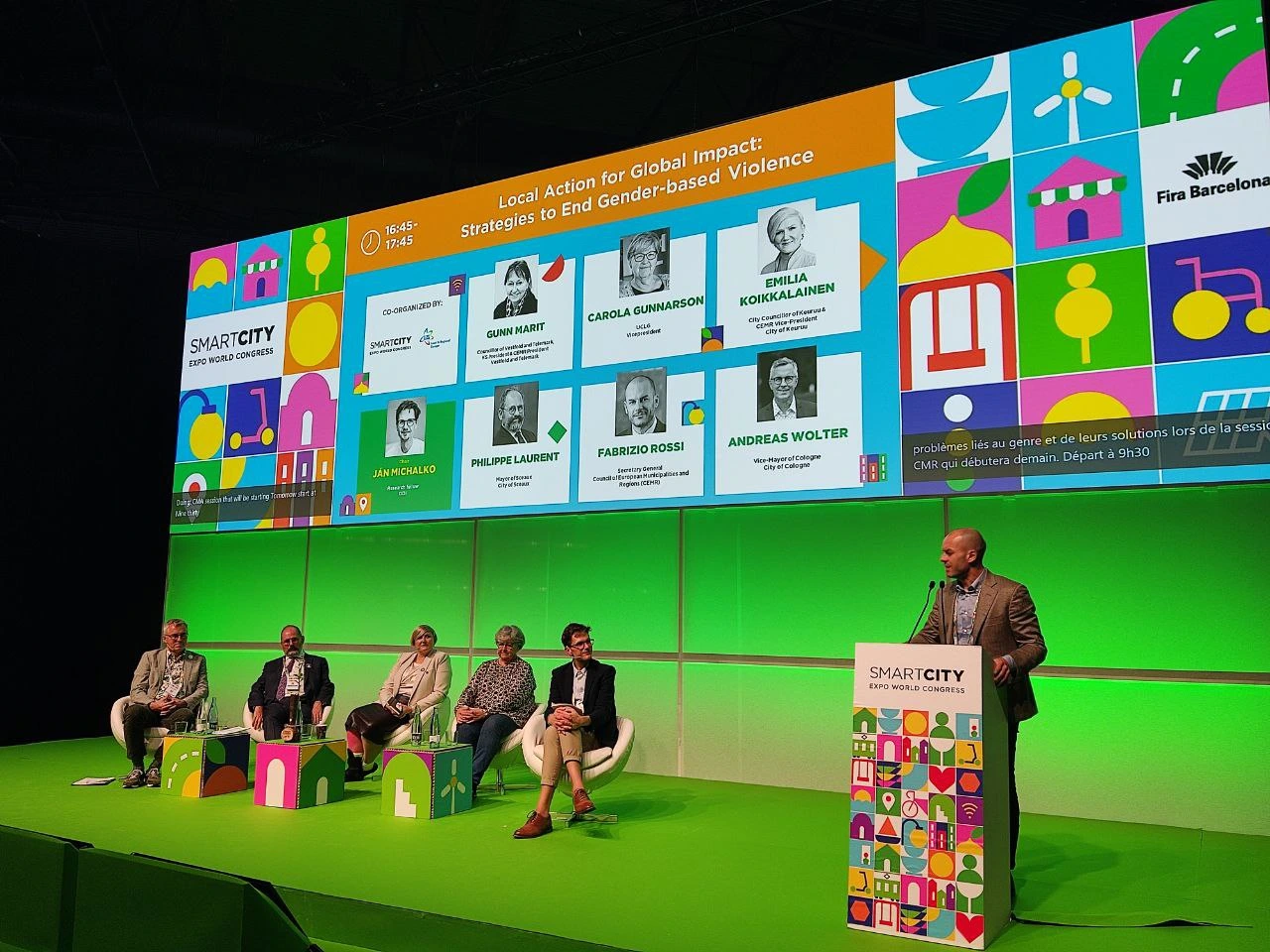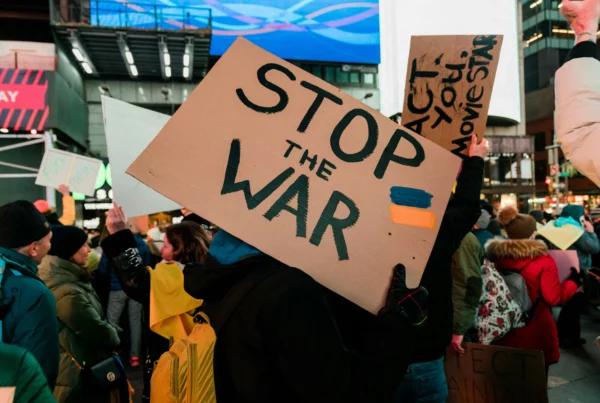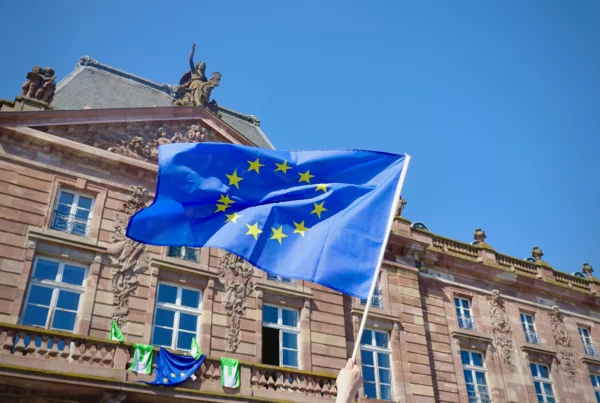CEMR members gather at Smart City Expo in Barcelona: facing global challenges together
What does it take for Local and Regional Governments to stay resilient in a world of growing challenges? From November 5 to 7, members of the Council of European Municipalities and Regions (CEMR) convened in Barcelona for a strategic retreat to tackle this very question.
The event, hosted at the Smart City Expo, opened with a sombre reminder: a devastating flood in Valencia had claimed over 200 lives. This tragedy underscored the urgent need for stronger climate adaptation policies and support for local governments to drive the green transition. The gathering also coincided with the announcement of the US election results, sparking discussions about its potential ripple effects across Europe and beyond.
This convergence of events set the stage for the retreat, emphasizing the urgency of collective action and mutual support in the face of global shifts. Our members worked in groups, guided by a professional facilitator, where they had the chance to present the situation in their territory and exchange ideas with their peers. The insights and conclusions drawn from these discussions will shape and guide CEMR’s strategic direction and priorities in the coming years.
Key Trends Defining the Future
How can local governments anticipate and prepare for emerging challenges? CEMR’s mission to foresee these trends and advocate for local authorities at the EU and international levels was a central theme. With insights from CIDOB (Barcelona Centre for International Affairs), participants defined major trends shaping European territories in the coming years.
Demographic Shifts and Labour Shortages
What if migration can help bridge the void between urban and rural? Europe faces a severe demographic crisis, marked by an ageing population and labour shortages. These trends widen gaps between urban and rural areas and between developed and less developed regions, creating significant challenges for local administrations. Yet, migration, when managed inclusively, can be a vital asset. CEMR members shared the difficulties and successes of implementing inclusive policies that benefit their communities and defined how CEMR can be meaningful in influencing the EU policy making when it comes to migration inclusion at the local level.
Climate Change and adaptation policies
How can we effectively address climate change at the local level? Recent extreme weather events, such as the DANA floods, have highlighted the urgent need for climate adaptation. Local governments play a critical role in implementing 70% of climate policies and driving sustainable solutions. Yet, they often face significant funding challenges at both European and international levels. Additionally, the retreat recognised how climate change is influencing migration patterns, further complicating future planning for cities and regions. CEMR is exploring the interconnectedness of these challenges and has recently published a report on the impact of these two global dynamics at the local level. The report is available here.
Artificial Intelligence and Hyperconnectivity
Why is attracting talent vital for local governments? In an era of rapid technological advancement, investing in AI-driven services and innovative solutions is essential. The retreat underscored the importance of harnessing collective intelligence and empowering younger leaders to drive digital transformation in local governance. It also introduced the Talent Hub for Regions and Cities – developed in partnership with UCLG and Eurocities – an innovative platform designed to attract, train, and retain talent in the field of local diplomacy.
Threats to Liberal Democracy
Did you know that 73% of the world’s population lives under autocratic regimes and that this trend threatens local self-governance and diminishes the role of local governments in international forums? CEMR members discussed how rising inequality and polarisation fuel violence, particularly against female elected officials. Drawing from a recent report on women in local politics, members examined ways to protect these leaders and ensure equitable portfolio distribution.
Shifts in Geopolitics
What role will city diplomacy play in a fragmented world? As geopolitical alliances evolve, city-to-city partnerships may shift from value-based to interest-driven collaborations. Yet, city diplomacy remains a powerful tool when national dialogues falter. As Fabrizio Rossi, CEMR Secretary General, reflected: “It is our collective duty to think ahead and prepare local and regional governments to navigate the profound transformations shaping our world. By working together, we can build the resilience and inclusivity needed to safeguard democracy and prosperity.”
The three-day retreat concluded with CEMR members agreeing that, while local leaders continue to earn the trust of their communities, tackling these complex challenges demands a renewed commitment to collaboration. The priorities set during the retreat will be further developed in upcoming CEMR gatherings to define our organisation’s action and advocacy. Only through united action can we create sustainable solutions for a resilient and democratic future.

Secretary General






